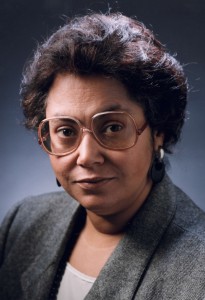The Hidden Story
by Beverly Lucas
Imagine how difficult it would be to attend medical school while a war is being fought in your country; in a year when the horse and cart was the common mode of transportation, in a time when slaves were newly freed and when neither women nor blacks had the right to vote. These were precisely the conditions facing Rebecca Lee who, on March 1, 1864, became the first black person in the United States to graduate from medical school. On that date Dr. Lee was one of three students granted the degree of Doctress of Medicine from the New England Female Medical College in Boston, Massachusetts.
Although little is recorded specifically about Dr. Lee’s performance and accomplishments, records from the college indicate that graduates in 1864 were required to complete a 17 week course of study that included surgical and medical clinics and classes in anatomy, obstetrics, chemistry, toxicology, physiology, hygiene, and medical law. In spite of the seemingly insurmountable obstacles of the time, Dr. Lee achieved her goal of becoming a physician, and immediately after the Civil War she opened her practice in Richmond, Virginia.
Rebecca Lee, who in 1864 became the first black woman to be awarded the degree of Doctress of Medicine upon her graduation from the New England Female Medical College in Boston.
Now, fast forward to the 20th century; the year, 1959. Imagine being an 11-year-old black girl in the Bronx reading science fiction stories and dreaming about space in a time before man had walked on the moon, in a country where equal educational and employment opportunities for blacks were yet to be realized. Such was the climate for Patricia S. Cowings, Ph.D., whose childhood fantasies about space and interest in human behavior led to a career as a research psychologist at NASA.
One of four children, Dr. Cowings refused to let the attitudes of the times serve as a barrier to her goal of becoming a scientist. The need to prove something to herself and her family gave Patricia the determination she needed to pursue her education. And, in 1973 she received her doctorate in Psychology from the University of California, Davis. Today, Dr. Cowings is recognized as a pioneer in the use of biofeedback techniques to help astronauts prevent motion sickness in space.
Although Dr. Lee and Dr. Cowings chose seemingly “nontraditional” careers they actually followed a long tradition of black women in science and medicine. Although that tradition is often undocumented, black women can, in fact, trace their scientific ancestry to prehistoric Africa, where women were healers, agronomists, and astronomers. Our early ancestors “delivered” babies and nursed the sick. They realized that there was a relationship between the phases of the moon and the availability of vegetation just as prehistoric women no doubt gathered plants and discovered which had medicinal properties and which were poisonous.
The written history of science has been traced to Africa, where Egyptian priestesses developed and applied mathematical solutions to such problems as cutting blocks of stone to be used for the giant temples. In addition, hieroglyphics show that in Egypt, medicine was an established profession before 3,000 B.C. and that educated women worked as physicians and surgeons. Yet, why have the contributions of these women and others like them failed to become an integral part of our scientific history?
In the United States, the scientific contributions of both women and blacks have frequently been diminished and often overlooked entirely. For instance, slaves who invented mechanical devices were not allowed to obtain patents from the federal government to protect their inventions. In other cases, inventions were stolen from slaves and patented by their owners. Also, free black inventors often preferred to have their race kept secret in order to avoid jeopardizing the commercial success of their inventions. Thus, we can only speculate as to what extent black women probably played a role in the development of some of the inventions patented in this country.
Childhood fantasies about space led to Patricia S. Cowings career as a research psychologist for NASA.
In the United States, opportunities have been limited for women and blacks to pursue an educational course that would lead to a career in science. This limitation has resulted in a paucity of information about black women with careers in science. In light of these constraints, the achievements of black women in science become even more remarkable. The following sketches are representative of the few black women whose extraordinary achievements have made it into our nation’s history books.
Medicine
Contributions of black women to the field of medicine appear to be the best documented of all the sciences, beginning with Rebecca Lee, who in 1864 became the first black woman to be awarded the degree of Doctress of Medicine upon her graduation from the New England Female Medical College in Boston. Other early medical school graduates include Rebecca Cole, who graduated from the Women’s Medical College of Pennsylvania in 1867 and Susan M. Smith McKenney Steward, who received her degree from the New York Homeopathic Medical College and Hospital in 1870. Mary Eliza Mahoney (1845-1923) is credited with being the first black graduate nurse in the United States, and she helped found the National Association of Colored Graduate Nurses. Myra Adele Logan, M.D. (1909-1977) was the first female surgeon to operate on the heart in the world’s ninth such operation.
Other black women who have made or continue to make their mark in the field of medicine include Jane C. Wright, M.D. who was born in 1920. Dr. Wright is known internationally for her research on the use of chemotherapy for the treatment of cancer. She also helped develop the antibiotic aureomycin.
Helene Gayle, M.D., is one of the foremost epidemiologists in the United States today. In her work for the Center for Disease Control (CDC) in Atlanta, Dr. Gayle is working to contain the AIDS epidemic in this country and abroad.
Marilyn Gaston, M.D., heads the sickle cell disease branch of the Heart Lung and Blood Institute of the National Institutes of Health. Under her direction, researchers are trying to find a cure for sickle cell anemia, an inherited disease that affects 1 out of every 500 black Americans.
Hieroglyphics show that in Egypt, medicine was an established profession before 3,000 B.C. and thateducated women worked as physicians and surgeons.
Careers in Space
Today, black women are choosing space-related occupations ranging from astronaut to engineer, with NASA providing many of the employment opportunities.
Mae Jemison, M.D. is our nation’s first black female astronaut candidate and is a physician in general practice. In addition to her degree in medicine, she holds a B.A. in AfroAmerican studies and a B.S. in chemical engineering. Prior to becoming an astronaut candidate, Dr. Jemison was a staff physician with the Peace Corps.
As an aerospace engineer at NASA, Christine M. Darden, Ph.D., designs the wings of aircraft. Dr. Darden is currently designing a supersonic plane that will not create a sonic boom.
Other careers in Science
Black women, although their numbers are small, can also be found in other scientific fields. Serving as role models are: Shirley Ann Jackson, who in 1973 became the first black woman in the United States to earn a Ph.D. in physics. Dr. Jackson was awarded her degree from the Massachusetts Institute of Technology. As a student of theoretical solid state physics, Dr. Jackson studies and seeks to explain the behavior of physical systems at and below the molecular level.
Fern Y. Hunt, Ph.D., is currently a professor of mathematics at Howard University. Dr. Hunt, who is an applied mathematician, studies the mathematical basis for patterns found in nature and forecasts the unpredictability of these patterns over time.
Before becoming the first woman president of Spelman College in Atlanta Georgia, Johnetta Cole, Ph.D. was a professor of Anthropology and director of the Latin and Caribbean Studies program at Hunter College. Dr. Cole has published several essays on gender and race.
These women, along with many others whose accomplishments have gone unrecorded, have followed in the pioneering footsteps of black women in science and medicine. Their accomplishments have blazed a trail for other black women who choose to follow their path.
2. Haber, Louis. Women Pioneers of Science. New York: Harcourt Brace Jovanovich, 1979.
3. Museum of Science and Industry, Chicago. Black Achievers in Science. Teachers Guide.
4. Pearson, Willie Jr., Bechtel H. Kenneth (eds.). Blacks, Science, and American Education. New Brunswick, New Jersey: Rutgers University Press, 1989.
5. Waite, Frederick C. History of the New England Female Medical College, 1848-1874. Boston, MA: Boston University School of Medicine. 1950.
Childhood fantasies about space led to Patricia S. Cowings career as a research psychologist for NASA.
Hieroglyphics show that in Egypt, medicine was an established profession before 3,000 B.C. and that educated women worked as physicians and surgeons.


